It’s been four years since Google launched its first smart speaker - the Google Home - then Google acquired Nest to fuel its smart home ambitions and released a few more iterations of its smart speakers, followed by the latest Google Nest Audio. Which also means Google now has the Nest Mini, Nest Hub and Nest audio, a much better proposition to take on Amazon’s wide range of Echo devices. As the name suggests, the Nest Audio is focused on bringing a richer audio output to make it suitable for music listeners and serve a larger customer base.
Audio quality is now one of the key focus areas and the new Echo speakers or simply any Alexa or Google Assistant-based smart speaker from manufacturers like Bose or Sony are proof. Especially, after Apple released its impressive-sounding HomePod. Before making any assumptions, you must know that the Google Nest Audio costs a lot less than a Bose 500 or the Apple HomePod. It retails at Rs 7,999, which is what makes it an impressive option for a price-sensitive market like India. But does it deliver the ‘audio’ performance we expected from it? Let’s find out.

Audio performance: Google is on the right track
The Nest Audio packs a 75mm woofer and a 19mm tweeter. Since it carries ‘Audio’ in its name, one is bound to have high expectations in this department. For its size, the Nest Audio sounds pretty impressive. It has a loud and clear sound for all kinds of media from spoken word to the music. It operates at 90Hz frequency response, which is considered great if you want to listen to music in its entirety. In my usage, I found it really impressive, but note that if you’re a big fan of bass, you might not enjoy bass-heavy tracks. Although, I did anticipate that because of the size limitation of the speaker.
This is not a party speaker, but it’s as good as any other single-body compact speaker of its price. I don’t think I missed playing any genre on this speaker in the last 25 days, from my mother’s unmastered bhajans to beautiful guitar work by Led Zeppelin in ‘Stairway to Heaven’. But at times when playing a song like Radiohead’s ‘The National Anthem’ you might want to tweak the equaliser manually to get the right balance. In a silent house like mine, I found volume at level 6-7 to be perfect for music while you’re talking to someone or working. Even at half volume, the mids and lows are well reproduced. If you’re a fan of harmonic instruments, vocals and electronic music you have a higher chance of enjoying this. Or if you listen to a lot of podcasts, this speaker will give you no chance to complain there either.

Microphone performance: Worth appreciation
I would always say that a microphone is as important if not more than the speaker performance on voice-enabled gadgets. Thankfully, Google doesn’t disappoint here. Be it picking up voice, recognition or responding to it, the speaker feels more user-friendly and a step closer to making it more realistic.
I have been using this for over 25 days and there hasn’t been a single instance where I found myself struggling with making it understand what I mean. However, my 56-year-old mother having her first smart speaker experience had a hard time conversing with Google Assistant in Hindi. I immediately realised that there’s still a learning curve involved for first-time Assistant users to understand how it reacts to commands. There’s also a lot of work left to be done in Hindi recognition, given the variety in tone and accent in different regions.
The only instance where I had to raise my voice a bit is when the volume was over 7, but it’s still reasonable compared to the Mi Smart Speaker, which costs slightly less than this one. You can talk to it from up to 10-ft without having to scream.
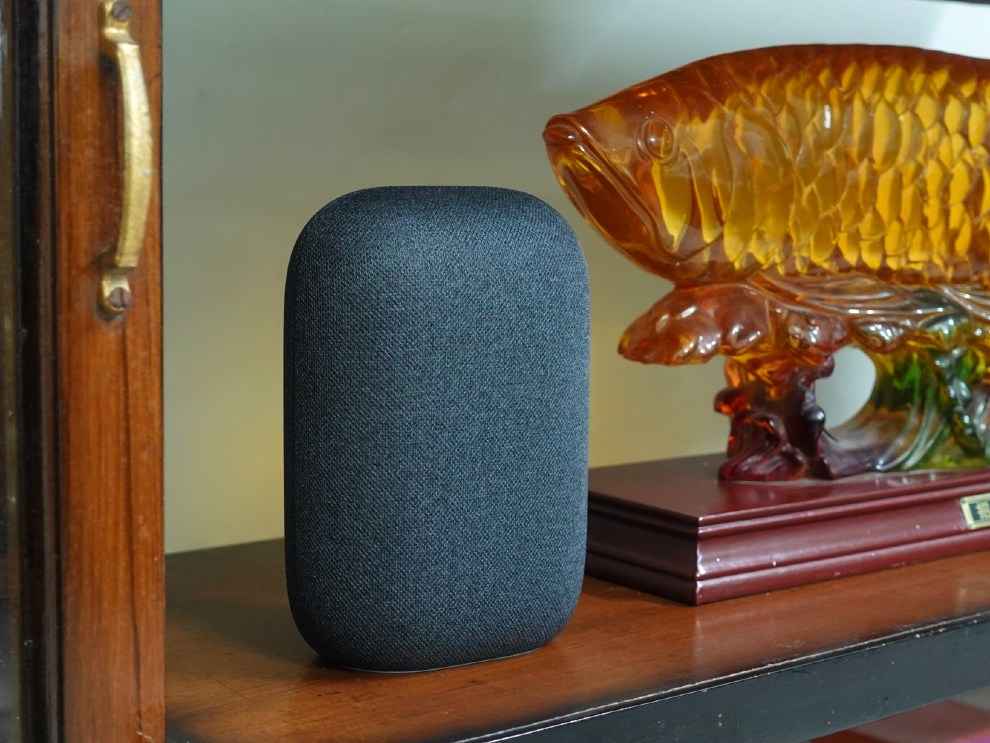
Design and build: Seamless minimalism
If you’ve seen the previous Google Home and Google Nest speakers, you will immediately be able to tell that the Nest Audio comes from the same family. It has a very simplistic, minimalistic and neutral look, just what we’ve seen on the company’s smart speakers in the past. The front is seamless, it has nothing except for the four LEDs that light up when you interact with the speaker. If you’ve seen the Google Home Max, it's the same shape but one-third of its size. It’s less than 7 inches tall and only 3 inches thick.
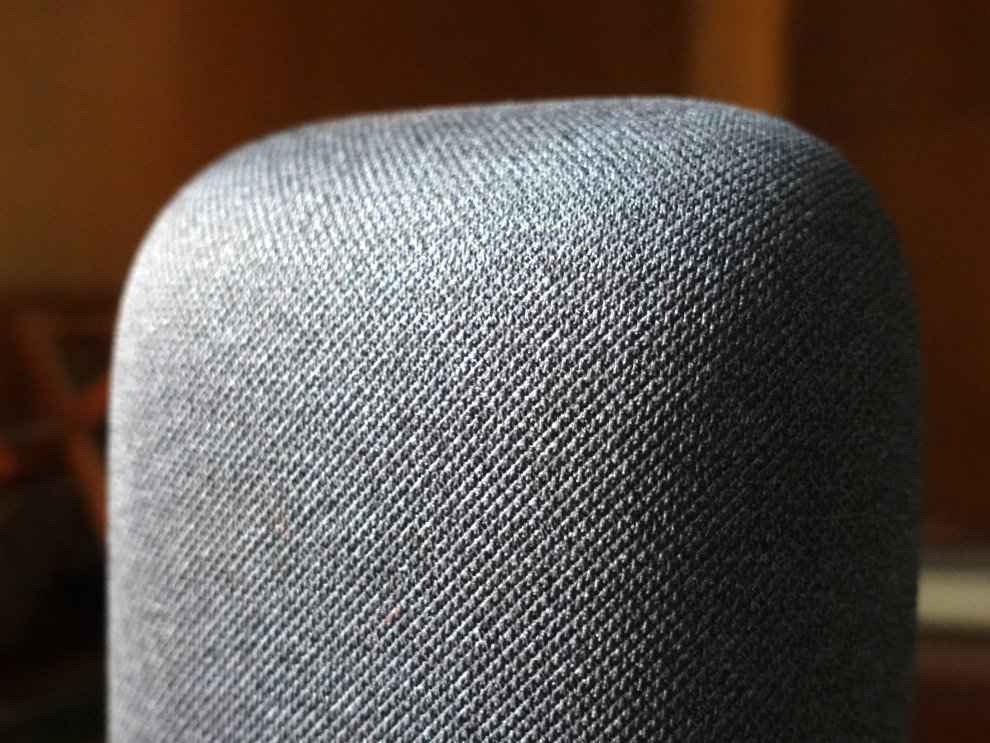
It has Google’s identical net-style cloth wrapped around the body with a single seam running around the sides, joining at the flat rubberized bottom with a ‘G’ (Google logo) in the centre. I had my doubt about the material’s durability and resistance to dust when I first bought my Google Home Mini three years ago, but it’s still as good as new, in shape, texture and appearance. Those going for lighter shades, however, will have to clean it more often.

The moment I picked the Google Nest Audio’s box, I could feel its heft. It has a very solid construction, weighing just over 1Kg, which shouldn’t be an issue as it’s a stationary speaker that isn’t meant to be carried in your bag. The most you would do is move it around your house, and its weight makes it more stable, preventing it from falling off even if the platform shakes.
It also has touch controls like older Google Home and Nest speakers. Tapping the left part reduces volume while tapping on the right will increase it. The middle part lets you control music playback for play, pause, next and previous.
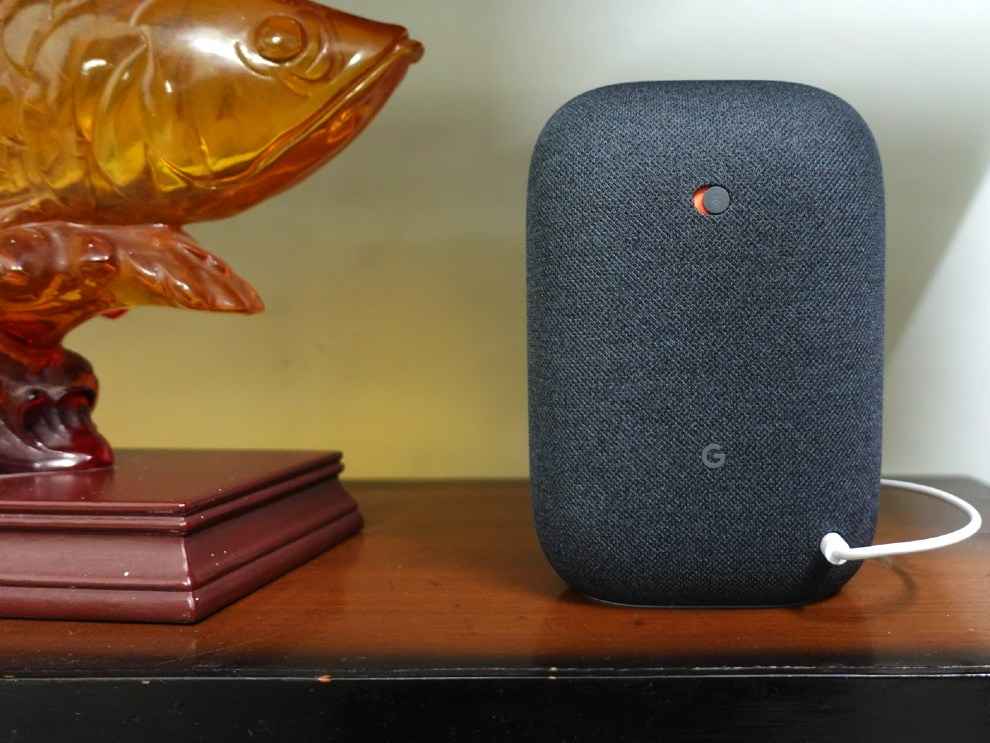
The minimalism pans all over the body as it only has a body-coloured mute switch, Google logo and the DC power port at the back. It comes in five colours: Chalk, Charcoal, Sage, Sand and Sky, and all of them look fit for most room settings as they do not have a lot going on in the design, or with colours. Also, note that you can’t mount it on a wall, so the only option is to place it vertically on a flat surface.
Smart Home features
It works just as any other Google Assistant-based smart speaker, maybe a bit faster because of the new chip. It lets you do basic tasks like setting reminders, booking an Uber, controlling IoT-based appliances and telling weather and jokes. The speaker also has Chromecast built-in, which worked just as intended when I tried to stream videos and music on a smart TV. It can also be used as a standalone Bluetooth speaker in case you lose Wi-Fi. You just have to command the Assistant to “pair Bluetooth” and it will automatically go into pairing mode.
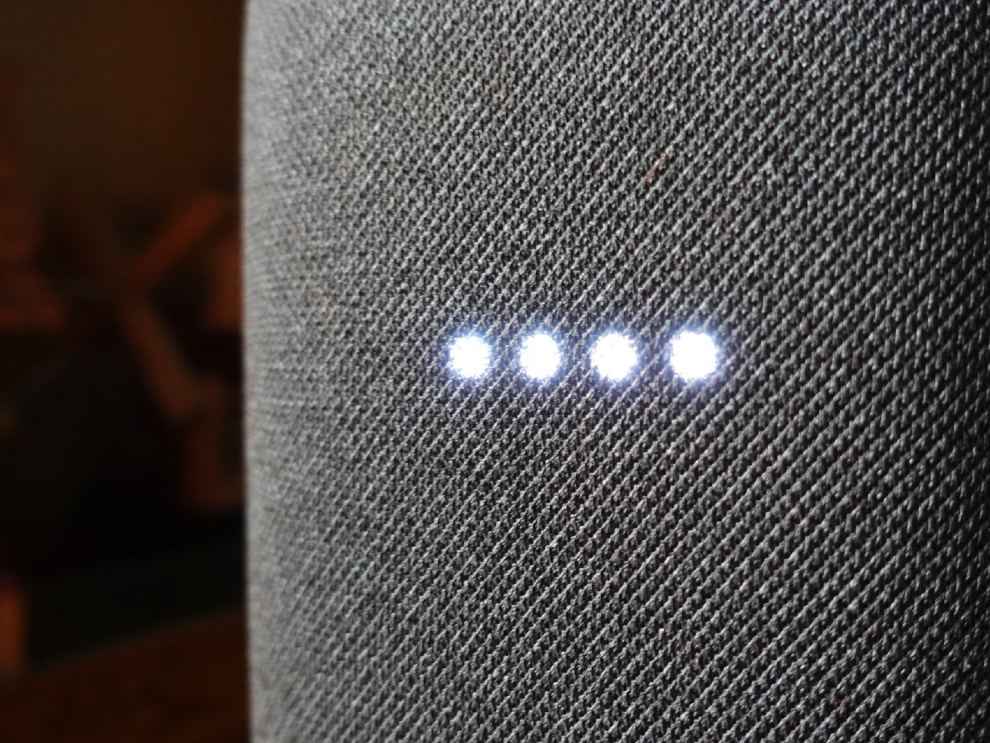
Setup
Setting up the Nest Audio is nothing unusual. Just download the Home app, plug the speaker to power, go to add device and keep following the instructions. Make sure you connect it to the permanent Wi-Fi. If you are new to the Google Home ecosystem, you must know that it uses third-party services alongside its own to source music and other content, so you will need to sign those up in the app. Note that it doesn’t support Apple Music and Amazon Music, which might be a bummer for some. Other popular apps that you can use are YouTube Music, Deezer and Spotify. Just in case it scares you, know that almost every app aside from the two mentioned gives you an option to cast your music.
There’s also an option to group multiple Nest Audio speakers, but we didn’t get a chance to test it. Going by how it’s advertised, it should create a proper 2 channel surround sound system if that’s what you want.
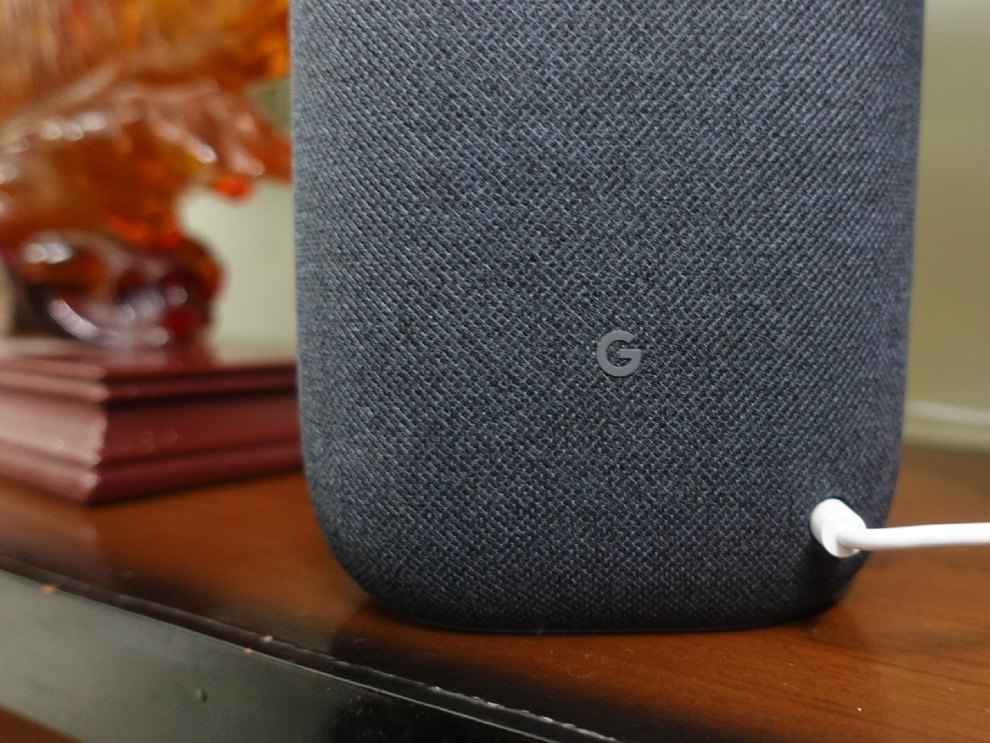
Bottom line
The Nest Audio is affordable, elegant and a great-sounding compact smart speaker for your room. If your question is, is it the best smart speaker for listening to music? Absolutely not. But the smarts of Google Assistant wrapped in an elegant design with responsive microphones and a good audio performance at merely Rs 7,999 (currently selling at Rs 6,999), it is a great offering for those who want slightly more than the Nest Mini or Echo Dots and don’t want something as heavy as the Google Home Max. In case you're planning to save some bucks and can compromise the responsiveness, design and audio quality, the Mi Smart Speaker is the best money-saving alternative for Nest Audio.
[ad_2]
Source link

Post a Comment